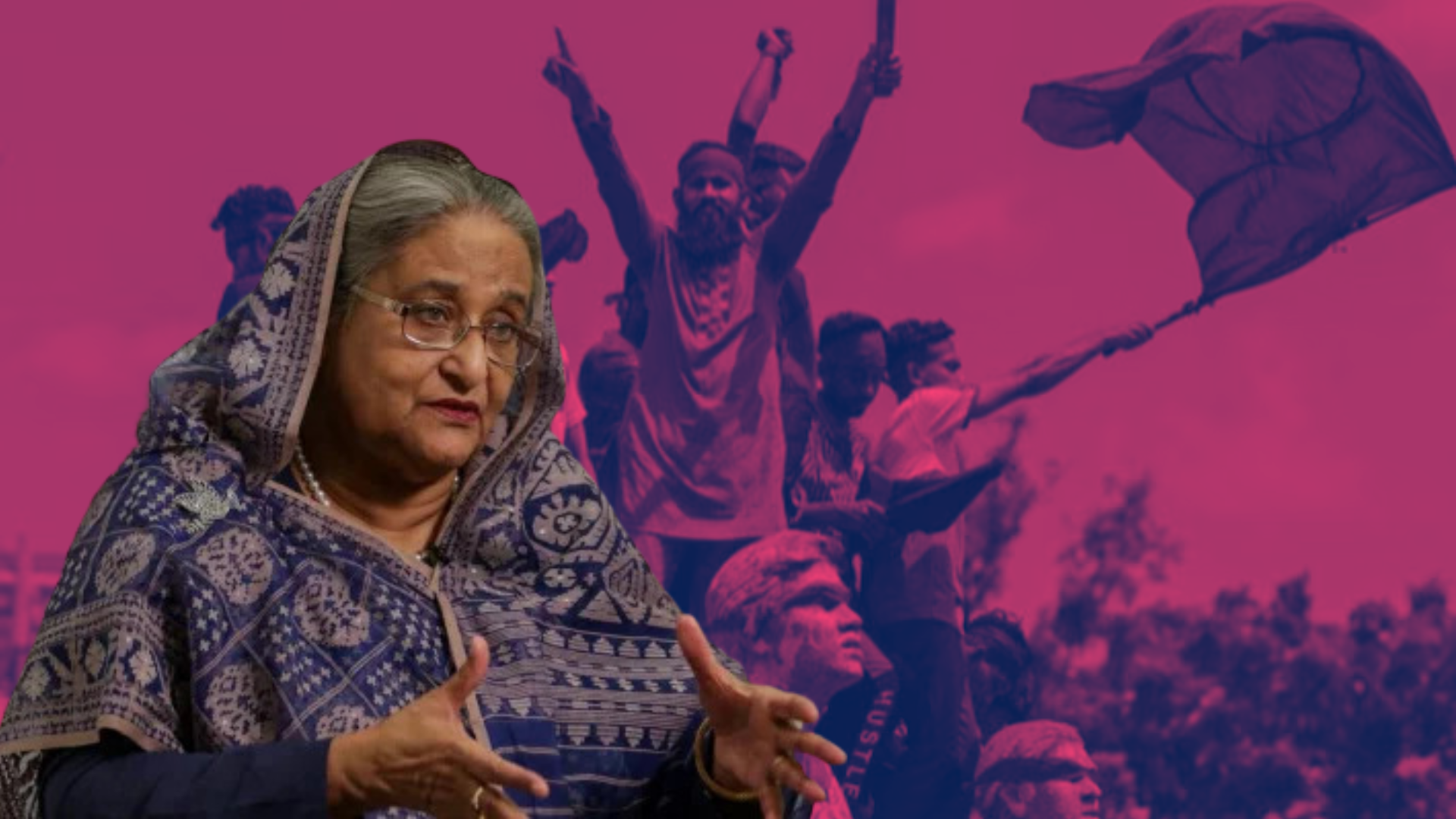Sheikh Hasina’s abrupt exit from Bangladesh and the ensuing political turmoil present significant challenges for India
 KRC TIMES Desk
KRC TIMES Desk

The sudden departure of Prime Minister Sheikh Hasina from Bangladesh amidst escalating chaos marks a dramatic turning point in the nation’s political history. This upheaval, characterised by violent protests, looting, and a breakdown of law and order, is a stark reminder of the perils inherent in authoritarian rule and the necessity of responsive governance.
Sheikh Hasina’s tenure, which extended over 15 years, was marked by significant economic progress and infrastructural development. However, her Government’s increasingly autocratic tendencies, coupled with policies perceived as unjust, have sown the seeds of widespread discontent.
The controversial quota system, reserving 30% of Government jobs for families of 1971 liberation war veterans, was the catalyst for the current crisis. While intended to honour the sacrifices of war veterans, the policy was seen by many as perpetuating inequality and favouritism, exacerbating tensions within an already polarised society.
While her Government achieved commendable economic milestones, it failed to foster a truly inclusive and democratic society. The suppression of dissent, manipulation of electoral processes, and marginalisation of opposition voices have alienated large sections of the population. This erosion of democratic space has now culminated in an explosive outburst of public anger.
The anti-Government protests, which have claimed hundreds of lives, reflect deep-seated frustrations that go beyond the quota system. The sight of protestors vandalising and looting Hasina’s residence, smashing the statue of her father, Sheikh Mujibur Rahman, and storming the Bangabandhu Memorial Museum underscores a collective anger that has been simmering for years.
General Waqar-uz-Zaman’s announcement of Hasina’s resignation and the establishment of an interim Government marks the end of an era and the beginning of an uncertain chapter. His call for cooperation and restraint is a critical step in restoring order, but the challenges ahead are formidable.
The absence of Awami League leaders in the discussions with the military indicates a significant shift in the political landscape, potentially paving the way for new political dynamics.
Sheikh Hasina’s abrupt exit from Bangladesh and the ensuing political turmoil present significant challenges for India. Her strong diplomatic ties with India fostered cooperation in security, trade, and counter-terrorism.
The instability could lead to increased insurgent activities, trade disruptions, and migration issues along the India-Bangladesh border. Geopolitically, a shift in Bangladesh’s foreign policy could favour hostile nations, affecting regional stability. Additionally, the unrest may necessitate humanitarian aid and exacerbate social tensions in India.
Navigating these challenges requires India to engage proactively with Bangladesh’s new leadership, emphasising diplomatic, security, and economic cooperation to maintain regional stability.
With high stakes in Bangladesh and the UK refusing asylum to Sheikh Hasina, India is closely watching the developments. BSF has heightened its alertness along the border, anticipating potential illegal crossings and increased cross-border crimes.
The evacuation of Indian students from Bangladesh further highlights the gravity of the situation. With incidents of arson, looting, and attacks on religious places of minorities, the situation is grim. The interim Government and the military have to restore order in Bangladesh.
For Bangladesh, the way forward lies in embracing democratic values and fostering a culture of political inclusivity. The interim Government and the military must prioritise a transparent and inclusive political process, ensuring that all voices, including those of the opposition and marginalised groups, are heard.
This requires not only restoring law and order but also initiating meaningful political dialogue and reforms. The violent outpouring of public sentiment must be curtailed. The scenes of jubilation, where citizens celebrated their newfound freedom, albeit in chaotic circumstances, reflect a deep yearning for democracy and justice.
This spirit must beharnessed constructively to rebuild the nation. Bangladesh stands at a crossroads, with the opportunity to redefine its political future. The situation is of major concern, and the only way forward is to restore democratic principles, address systemic inequalities, and pave the way for a brighter, more inclusive future for all Bangladeshis.



